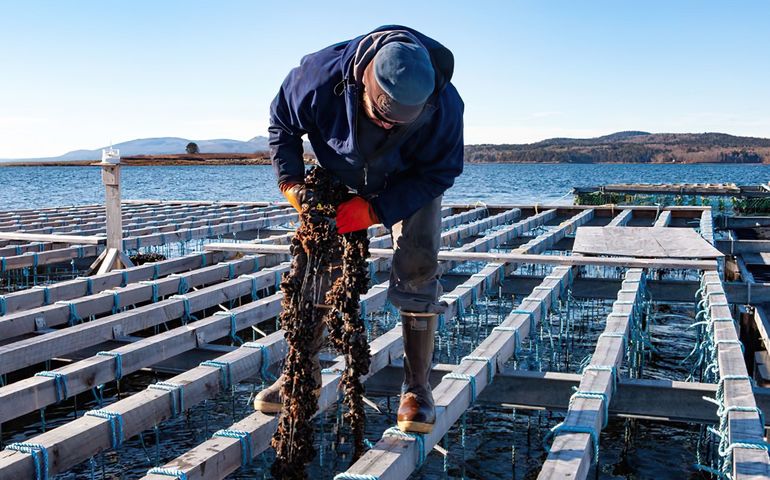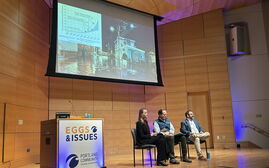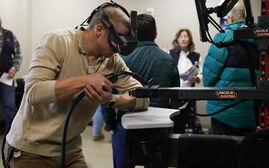Aquaculture workforce development is the focus of $500,000 grant to nonprofit
 Courtesy / FocusMaine
New initiatives are underway to establish workforce training for Maine’s aquaculture industry.
Courtesy / FocusMaine
New initiatives are underway to establish workforce training for Maine’s aquaculture industry.
Following a study that shows Maine’s increasingly diversified aquaculture industry is a growing source of potential jobs, the Gulf of Maine Research Institute in Portland is planning an aquaculture workforce training system with the help of a $500,000 grant from the U.S. Department of Agriculture’s National Institute of Food and Agriculture.
“Maine’s aquaculture industry is vital to our state’s economy but needs a skilled workforce to continue to grow and innovate,” U.S. Rep. Chellie Pingree, D-Maine 1st District, said in a news release announcing the award.
The Gulf of Maine Research Institute has designed a collaborative program aimed at training aquaculture specialists, helping students to secure jobs and supporting workforce needs.
The funding will:
• Help the institute develop and pilot the Maine Department of Labor's Aquaculture Apprenticeship Program where participants are expected to gain experience, receive mentoring, get trained and tested on defined occupational competencies, and learn to use cutting-edge technology at commercial shellfish and sea vegetable farms.
• Develop and administer a series of stackable, credentialed aquaculture short courses at Southern Maine Community College that form the basis of an aquaculture certificate.
• Update the Maine Aquaculture Occupational Standards for Shellfish and Sea Vegetables, Recirculating Aquaculture Systems, and Marine Finfish to ensure that aquaculture workforce training remains relevant to Maine's rapidly evolving and growing industry.
• Coordinate program development and delivery between Southern Maine Community College, Washington County Community College, Mid-Coast School of Technology (K-9 Career Technical Education High School), and the Maine Department of Labor Aquaculture Apprenticeship Program to establish matriculation pathways and dual-credit programs that enable fast-tracked degree completion.
The programming developed will have the potential to be expanded to other community colleges in Maine and throughout the Northeast, according to the release.
The project includes the creation of new curriculum and instructional delivery systems, pilot testing curriculum and delivery methods, and development of assessment tools. The content of the programming was designed to meet the need for entry-level skill sets in four key aquaculture sectors: recirculating aquaculture, fin-fish aquaculture, shellfish aquaculture and macroalgae aquaculture.
Students graduate with a workforce training certificate or an associate degree.
Although Maine’s aquaculture industry is small compared with seafood farming elsewhere in the nation and the world, industry experts see opportunity for expansion in various sectors.
According to a Maine Aquaculture Workforce Development Strategy report issued in 2020 by the Gulf of Maine Research Institute in partnership with the Maine Aquaculture Association and Educate Maine, with support from FocusMaine, Maine’s aquaculture workforce currently exceeds 600 direct employees, plus auxiliary services and supported trades.
But for 2022, the workforce is projected to include 880 employees across production and related activities, and over 1,600 across the supply chain.
The new initiative follows an aquaculture workforce training pilot program that received a $500,000 grant last April from the National Institute of Food and Agriculture, developed by the Maine Aquaculture Innovation Center in Walpole in partnership with Washington County Community College.
In another sign of aquaculture's growth, the Maine Aquaculture Association has also recently developed and released the nation’s first occupational standards for the industry.
Mainebiz web partners
And, anyone who graduates from a Maine college with a two year degree and then works in Maine is eligible to have their student loans reimbursed in full over ten years, up to the total tuition at SMCC for the two year period.














1 Comments